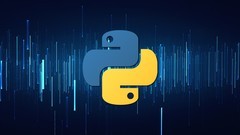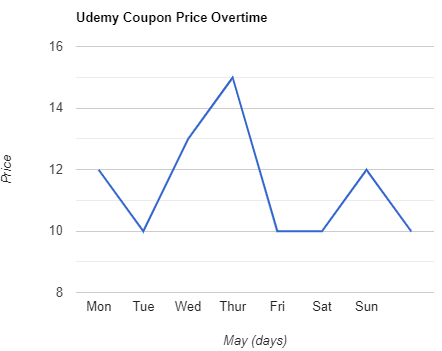Programming Reactive Systems
Principles of Reactive Programming in Scala.
Created by: Julien Richard-Foy
 Quality Score
Quality Score
Content Quality
/
Video Quality
/
Qualified Instructor
/
Course Pace
/
Course Depth & Coverage
/
Overall Score : 0 / 100
 Live Chat with CourseDuck's Co-Founder for Help
Live Chat with CourseDuck's Co-Founder for Help
Need help deciding on a data science course? Or looking for more detail on Julien Richard-Foy's Programming Reactive Systems? Feel free to chat below.
Join CourseDuck's Online Learning Discord Community
 Course Description
Course Description
Reactive programming is a set of techniques for implementing scalable, resilient and responsive systems. The basic building-block of such systems is event handlers. This course teaches how to implement reactive systems in Scala by using high-level abstractions based on event-handlers.
The course starts by showing how to abstract over event handlers. Then, it explains how to write concurrent systems by using the Actor programming model, how to make these systems resilient to failures, and how to scale out to distributed actors. Last, the course shows how to manipulate, in a resource efficient way, intermittent and potentially infinite streams of data.
During this course we'll go through: reminder on functional programming in Scala (case classes, higher-order functions, standard collections),
asynchronous programming with Future,
actor programming model,
introduction to Akka actors,
failure handling with actors using supervision,
actor lifecycle monitoring and Receptionist pattern,
persistent actor state,
distributing actors in a cluster,
eventual consistency,
actor composition,
scaling actor systems,
protocols in Akka typed,
Akka typed adapters,
challenges of stream processing,
the Reactive Streams specification,
introduction to Akka Streams,
streams failure handling and processing rate
streaming protocols and stream composition,
stateful operations and materialized values,
splitting and merging streams,
integrating streams with typed actors.
The course starts by showing how to abstract over event handlers. Then, it explains how to write concurrent systems by using the Actor programming model, how to make these systems resilient to failures, and how to scale out to distributed actors. Last, the course shows how to manipulate, in a resource efficient way, intermittent and potentially infinite streams of data.
During this course we'll go through: reminder on functional programming in Scala (case classes, higher-order functions, standard collections),
asynchronous programming with Future,
actor programming model,
introduction to Akka actors,
failure handling with actors using supervision,
actor lifecycle monitoring and Receptionist pattern,
persistent actor state,
distributing actors in a cluster,
eventual consistency,
actor composition,
scaling actor systems,
protocols in Akka typed,
Akka typed adapters,
challenges of stream processing,
the Reactive Streams specification,
introduction to Akka Streams,
streams failure handling and processing rate
streaming protocols and stream composition,
stateful operations and materialized values,
splitting and merging streams,
integrating streams with typed actors.
 Instructor Details
Instructor Details

- 0.0 Rating
 0 Reviews
0 Reviews
Julien Richard-Foy
Julien Richard-Foy is director of education at Scala Center. He makes sure that programming techniques that have been proven successful in the industry or that have solid theoretical foundations are accessible to as many curious people as possible.
 Students also recommend
Students also recommend

-
Python A-Z: Python For Data Science With Real Exercises! (2022)
-
4.4 (150 Reviews)
-
 Provider: Udemy
Provider: Udemy Time: 11h
Time: 11h
$10.44







